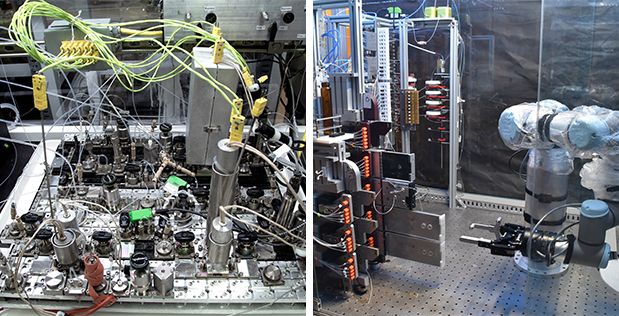Chemical innovation plays a key role in developing cutting-edge technologies for the military. Research chemists design and synthesize new molecules that could enable a slew of next-generation military products, such as novel propellants for spacecraft engines; new pharmaceuticals and medicines for troops in the field; lighter and longer-lasting batteries and fuel cells; advanced adhesives, coatings and paints; and less expensive explosives that are safer to handle. The problem, however, is that existing molecule design and production methods rely primarily on experts’ intuition in a laborious, trial-and-error research process.
DARPA’s Make-It program, currently in year three of a four-year effort, is developing software tools based on machine learning and expert-encoded rules to recommend synthetic routes (i.e., the “recipe” to make a particular molecule) optimized for factors such as cost, time, safety, or waste reduction. The program seeks to free chemists so that they may focus their energy on chemical innovation, rather than testing various molecular synthesis pathways. The program also is developing automated devices that uniformly and reproducibly create the desired chemical based on the software-generated recipe – this one-device, many-molecules concept is a departure from the traditional dedicated reactors in chemical production. Make-It research teams have recently demonstrated significant progress toward fully automated rapid molecule production, which could speed the pace of chemical discovery for a range of defense products and applications.
“A seasoned research chemist may spend dozens of hours designing synthetic routes to a new molecule and months implementing and optimizing the synthesis in a lab,” said Anne Fischer, program manager in DARPA’s Defense Sciences Office. “Make-It is not only freeing chemists to expend brain power in other areas such as molecular discovery and innovation, it is opening chemical synthesis and discovery to a much broader community of scientific researchers who will benefit from faster development of new molecules.”
